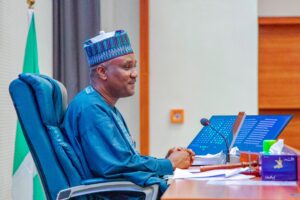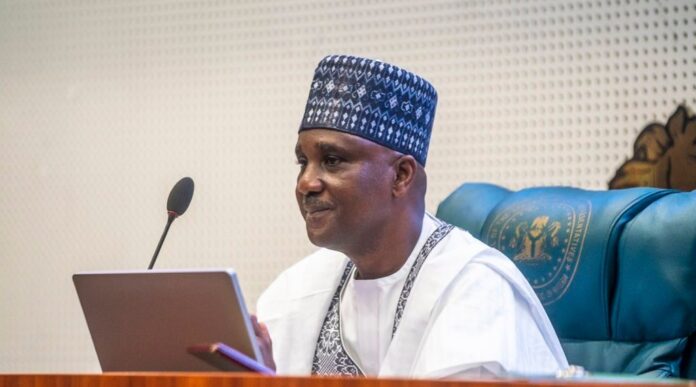Tajudeen Abbas, the Speaker of the House of Representatives, has identified Nigeria’s insufficient tax revenue as a significant barrier to the nation’s development.
This statement was made during the presentation of the 2025 Appropriation Bill to a joint session of the National Assembly by President Bola Tinubu in Abuja.
Abbas pointed out that Nigeria’s tax-to-GDP ratio, currently around 10.9% for 2024, ranks among the lowest in Africa, falling short of the continental average of 15.6%.
He noted that Nigeria’s efficiency in collecting Value Added Tax (VAT) stands at about 20%, a stark contrast to the nearly 70% efficiency seen in countries like South Africa, Equatorial Guinea, and Zambia.
“In comparison, South Africa boasts a tax-to-GDP ratio of 25.4%, while Rwanda and Ghana, despite their smaller populations, report ratios of 15.1% and 14.1%, respectively,” he remarked.

Abbas emphasized that Nigeria’s financial situation called for serious evaluation, highlighting that despite being Africa’s most populous nation with over 220 million inhabitants, the 2024 national budget of $36.7 billion is modest relative to other nations.
He cited examples such as South Africa, with a budget of $160 billion for its 60 million residents; Egypt, with $110 billion for 110 million people; Algeria, with $60 billion for 45 million citizens; and Morocco, which allocated $50 billion for its 37 million residents.
The Speaker asserted that tackling these challenges necessitates urgent and comprehensive tax reforms aimed at expanding the tax base, enhancing compliance, streamlining administration, and decreasing dependence on borrowing.
He assured that lawmakers would collaborate with the Tinubu administration to ensure these reforms are fair, effective, and sensitive to the needs of vulnerable populations.
Abbas mentioned that the National Assembly has been engaging stakeholders to address concerns regarding the tax reform bills, fostering trust and collaboration.
“I have personally led numerous high-level meetings and consultations with state governors and other key stakeholders on this issue, resulting in positive outcomes,” he added.
He expressed that President Tinubu’s 2025 budget marks a pivotal step towards economic recovery and sustainable development.
The Speaker conveyed optimism that the president’s reforms would yield tangible benefits for Nigerians, praising his visionary leadership and steadfast commitment to the nation’s progress.
He acknowledged the significant sacrifices made by Nigerians over the past year, stating that the removal of fuel subsidies, rising inflation, and changes to economic policies have posed challenges.
According to him, these sacrifices are essential for building a resilient, self-sufficient, and prosperous nation.
“I urge all Nigerians to stay strong and united in our shared quest for a brighter future,” he said.
He assured the president of the lawmakers’ dedication to supporting the effective implementation of the 2025 budget.
“This is not just your budget; it is a national initiative that requires cooperation across all government branches. We will work to ensure its prompt passage, provide legislative support for essential reforms, and conduct thorough oversight to ensure transparency and efficiency in its execution,” he stated.
Abbas emphasized the need to confront 2025 with determination, focusing on stabilizing prices, enhancing agricultural productivity, expanding infrastructure, and investing in education, healthcare, and security, which he deemed top priorities.
He concluded that to reinforce national unity and build trust, it is crucial for the government to effectively communicate its achievements to the Nigerian populace.




